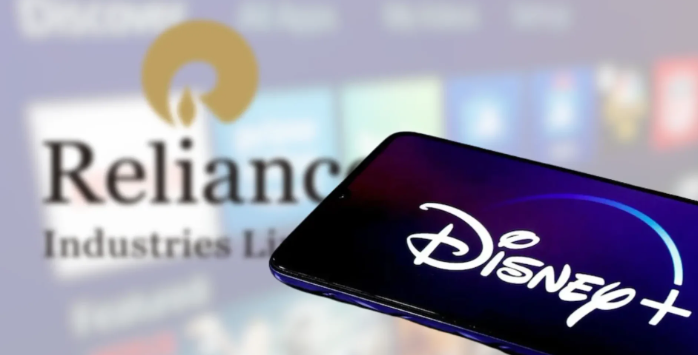CCI Raises Concerns Over Reliance-Disney Merger (GS Paper 3, Economy)

Introduction
- The Competition Commission of India (CCI) has voiced significant concerns regarding the proposed merger between Reliance Industries and Walt Disney's media assets in India.
- This merger, which involves combining the operations of Viacom18 Media Private Ltd and Star India, could potentially reshape the media landscape, particularly in the realm of digital and TV cricket rights, including the highly coveted Indian Premier League (IPL).
Background of the Merger
- Earlier this year, Reliance Industries, Viacom18 Media Private Ltd, and The Walt Disney Company announced a definitive agreement to form a joint venture that would merge their media businesses.
- This proposed consolidation aims to combine the strengths of Viacom18 and Star India, creating a formidable entity in the Indian media market.
- However, this merger has prompted scrutiny from the CCI due to concerns over its potential impact on competition.
Regulatory Framework and CCI's Role
- Under the Competition (Amendment) Act 2023, the CCI is empowered to scrutinize mergers and acquisitions that might lead to an appreciable adverse effect on competition (AAEC).
- If the commission suspects that a merger could significantly harm competition, it issues a statement of objections.
- The parties involved are then required to address these concerns and justify the merger within a specified timeframe, which is 25 days in this case.
Potential Adverse Effects on Competition (AAEC)
The CCI's concerns center around several potential adverse effects on competition that the merger could bring about:
- Reduction in Consumer Choices: With the consolidation of media assets, there could be fewer options available to consumers, leading to a decrease in the diversity of media offerings.
- Higher Prices: A reduction in competition might enable the merged entity to set higher prices for its services, as consumers would have fewer alternative options.
- Barriers to Entry: The merger might create substantial barriers for new players trying to enter the market, stifling innovation and competition from smaller or emerging firms.
- Exploitation of Market Power: The new entity could potentially engage in practices such as unfair trade terms or restrictive agreements that disadvantage competitors and consumers.
- Decreased Innovation: With reduced competition, there might be less incentive for the merged entity to innovate or improve its services.
Previous CCI Actions
- The CCI's scrutiny of mergers is consistent with its role in maintaining fair competition.
- For example, the commission previously imposed a substantial fine of ₹1,337.76 crore on Google for anti-competitive practices related to Android mobile devices, highlighting its commitment to addressing market imbalances.
About the Competition Commission of India (CCI)
- Established in 2009 under the Competition Act, 2002, the CCI is an autonomous statutory body responsible for eliminating anti-competitive practices, promoting and sustaining competition in markets, protecting consumer interests, and ensuring free trade in India.
- Its role is crucial in maintaining a competitive market environment and preventing monopolistic practices.
Conclusion
- The CCI's objections to the Reliance-Disney merger reflect its commitment to ensuring that major market consolidations do not harm competition.
- The outcome of this scrutiny will be pivotal in determining the future dynamics of India's media sector, especially in relation to key assets like the IPL.
- As the involved parties work to address the CCI's concerns, the focus will remain on balancing industry consolidation with the need to preserve a competitive and consumer-friendly market environment.


